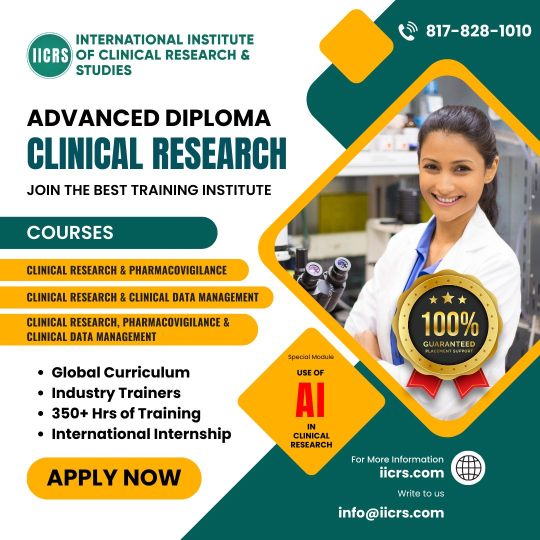#clinical research
Text

any trans men want to help my clincal research by letting me inspect their boner
#fang rambles#queer nsft#ftm#ftm nsft#t4t#t4t nsft#clinical research#my favorite thing ever when im browsing is to go on pubmed. dont ask me why (im a loser)
23 notes
·
View notes
Link
Large Language Models (LLMs) have emerged as dynamic tools with the ability to transform the landscape of biological research in a world driven by data and technology. These advanced AI models, including well-known names like BERT and GPT, are not confined to linguistics but have found their way into the complex realm of biology. In this article, let’s explore the potential of LLMs in addressing pressing biological challenges, such as drug discovery, disease diagnosis, genomics, and more.
What are Large Language Models?
ChatGPT, along with similar models, has gained widespread attention and adoption. Many people even integrate it into their daily routines. What makes ChatGPT and similar models remarkable? These LLMs represent a facet of artificial intelligence (AI) specifically formulated to understand, process, and even create “human-like” text. Developers construct them using transformers—a type of neural network—as their architecture; they pre-train these on copious amounts of textual data to assimilate the patterns, structures, and nuances inherent in human language.
Continue Reading
#bioinformatics#large language models#llm#ai#transformers#biomedicine#clinical research#genomics#data analysis
35 notes
·
View notes
Text

5/3/2023
I’m studying before clinic this morning at this cute cafe I found. Then I’ll go to my school’s poster session this afternoon. A solid Thursday schedule ☺️
#emgoesmed#studyblr#studyspo#med student#med school#med studyblr#productivity#ms3#clinical rotations#surgery#ophthalmology#clinical research#case report#coffee#cafe
45 notes
·
View notes
Text
Every time I get some momentum with my studies/research paper, I feel an overwhelming sense of achievement and joy.
And then, God knows why, but I procrastinate again -- and then can't bring myself to start again. And so it goes.
Every. Single. Time.
#procrastination#working#medicine#med school#studying#lifelong learning#research paper#clinical research#studyblr#study spo#procrastinator
73 notes
·
View notes
Text
How to treat the Untreatable... I won a new grant!
I will do my best to reverse resistance in some deadly superbugs so we can treat them again!

Adéla Melcrová (aka Miss Biophys) is one of the only 2 awardees of the Research Grant by PAR Foundation (Foundation to Prevent Antibiotic Resistance) selected from 171 applications from the whole world.
https://parfoundation.org/par-foundations-grant-call-2023-empowering-innovators-and-young-advocates-to-mitigate-the-impact-of-amr/
You can watch my pitch of the project here, time 11:23:
https://www.youtube.com/watch?v=MYx6ja4t1Qo
#research#science#grant#award#postdoc#university#medical science#hospital#clinical research#biophysics#amr#antibiotics#achievement#academia#success#women in science#original content
9 notes
·
View notes
Text
Extra 20% Discount on CPD Courses
#copromote.com#headliner.fm#youtube#clinical research#study motivation#studyspo#study space#student life#university#studying
2 notes
·
View notes
Text
Clinical Research | Agima Medical Management
Clinical Research is an Ideal Way Medical Treatment!

With Medicare and PPO plans constantly reducing reimbursement, your practice should consider diversifying its payer mix.
Clinical Research is an ideal way to do this. It offers your practice a form of reliable reimbursement for taking part in clinical research studies.
4 notes
·
View notes
Text
Navigating Global Compliance: The Role of AI in MedTech
New Post has been published on https://thedigitalinsider.com/navigating-global-compliance-the-role-of-ai-in-medtech/
Navigating Global Compliance: The Role of AI in MedTech
In the rapidly evolving landscape of MedTech, where innovation intersects with stringent regulatory frameworks, staying compliant while driving progress can be a daunting challenge. Amidst the backdrop of complex regulatory landscapes and the increasing interconnectedness of global markets, the incorporation of cutting-edge technologies such as AI becomes pivotal for organizations operating across borders. As regulatory requirements continue to evolve in complexity and scope, leveraging AI is no longer merely beneficial; it has become essential for efficiently and effectively navigating the intricate regulatory landscape.
With the integration of AI, tasks that were once time-consuming and tedious have been streamlined to enhance efficiency and accuracy in regulatory research. AI-powered tools offer the capability to navigate vast databases, analyze clinical research data, streamline document searches, and access worldwide regulatory news. In doing so, they equip stakeholders with the insights needed to remain abreast of regulatory changes and make well-informed decisions amidst the dynamic regulatory landscape.
Streamlined Compliance Through Data Insights
In today’s regulatory landscape, meeting compliance requirements is more critical than ever for businesses across industries. However, the sheer volume and complexity of regulations can often pose significant challenges, making it difficult for companies to navigate them efficiently. Fortunately, advancements in data analytics and technology are transforming the way organizations approach compliance, offering solutions to streamline processes and ensure adherence to regulatory standards.
One of the key drivers of this transformation is the utilization of big data analytics. With data analytics, companies can gain deeper insights into regulatory requirements, enabling them to identify potential areas of non-compliance and address risks proactively. For instance, organizations can aggregate and analyze vast amounts of data from various sources, such as internal records and industry databases, to uncover patterns and trends that inform more robust compliance strategies tailored to their specific needs.
Our internal platform, GRIP, exemplifies how comprehensive data insights can simplify compliance processes. By providing a centralized hub for accessing regulatory information and identifying open access points, one-stop search solutions like GRIP streamline the compliance journey, saving valuable time and resources for regulatory professionals, compliance officers, and innovators in the MedTech sector.
Predictive analytics also plays a crucial role in anticipating regulatory changes and their potential impact on business operations. By leveraging historical data and machine learning algorithms, companies can forecast regulatory trends and proactively adapt their compliance processes accordingly. This proactive approach not only helps companies stay ahead of regulatory changes but also minimizes the risk of non-compliance penalties and reputational damage.
Additionally, the integration of automation technologies such as robotic process automation (RPA) and artificial intelligence (AI) is streamlining compliance workflows. These technologies streamline the execution of repetitive tasks while minimizing manual errors, thereby optimizing efficiency, accuracy, and scalability across various compliance processes. By automating mundane tasks, these technologies also allow organizations to allocate resources more strategically.
Overall, streamlined compliance through data insights enables organizations to navigate regulatory environments effectively, reduce compliance costs, and mitigate risks proactively. By utilizing data analytics, predictive analytics, and automation technologies, companies can gain a competitive edge in regulatory compliance while fostering innovation and growth in their respective industries.
Efficiency Through Innovation: Regulatory Monitoring
Remaining up to date with worldwide updates and modifications is essential in the dynamic field of regulatory affairs. Regulatory monitoring stands at the forefront of compliance management, requiring organizations to stay abreast of constantly evolving regulations across multiple jurisdictions and industries. Traditionally, this process has been resource-intensive and time-consuming, often involving manual searches, thorough reviews of regulatory publications, and coordination among various stakeholders. However, with the development of recent technologies, companies can now leverage automation and advanced analytics to enhance the efficiency of their regulatory monitoring efforts.
One notable innovation in regulatory monitoring is the integration of natural language processing (NLP) and machine learning algorithms. These tools automate the collection and analysis of regulatory information by scanning vast amounts of textual data from regulatory websites, news sources, and legislative documents. By identifying relevant updates, extracting key information, and categorizing regulatory changes based on their potential impact, these technologies streamline the monitoring process.
Moreover, intelligent monitoring systems equipped with AI capabilities continuously enhance the accuracy and relevance of regulatory alerts. By learning from past regulatory events and user interactions, these systems prioritize alerts based on their relevance to specific business operations. This adaptive approach optimizes resource allocation and decision-making processes, ensuring organizations focus on critical regulatory updates.
Cloud-based platforms and regulatory intelligence solutions offer a centralized hub for managing and monitoring regulatory compliance activities. Providing real-time access to regulatory updates, compliance documentation, and audit trails, these platforms enable organizations to streamline collaboration, track compliance status, and demonstrate accountability to stakeholders.
Aside from advancements in technology, forging partnerships with regulatory experts and industry associations can offer invaluable insights and guidance on emerging regulatory trends and best practices. Through collaboration and knowledge-sharing with external stakeholders, companies can enrich their regulatory intelligence capabilities and stay ahead of the curve in compliance management.
By innovating regulatory monitoring processes, organizations gain the ability to proactively identify and respond to regulatory changes, mitigate compliance risks, and drive operational excellence. Embracing advanced technologies, forming strategic partnerships, and adopting best practices cultivates a compliance-focused culture that not only meets regulatory standards but also facilitates sustainable growth and competitive advantage.
The Future of Regulatory Management: AI Digital Tools
Looking ahead, leveraging the capabilities of AI-powered digital tools will be key to the future of regulatory management. Given that AI-powered platforms not only streamline organization but also provide seamless translation into multiple languages, it’s evident that these platforms improve compliance efficiency while also increasing accessibility. This enables global collaboration and communication, fostering enhanced connectivity and cooperation across diverse regions and stakeholders.
In conclusion, AI-powered platforms represent a paradigm shift in MedTech regulatory compliance, offering companies unprecedented agility and confidence in navigating complex regulatory landscapes. By harnessing these platforms, stakeholders can seamlessly navigate regulatory landscapes, leveraging streamlined compliance through data insights and efficient regulatory monitoring. AI-powered platforms pave the way for a future where regulatory compliance is synonymous with innovation and efficiency, driving the MedTech industry towards greater advancement.
#Accessibility#ai#AI-powered#alerts#Algorithms#Analysis#Analytics#approach#artificial#Artificial Intelligence#audit#automation#Big Data#big data analytics#Business#challenge#clinical research#Cloud#Collaboration#communication#Companies#complexity#compliance#comprehensive#connectivity#cutting#data#data analytics#databases#development
0 notes
Text
The Best Approach to Writing a Research Paper

1. Understanding the Terrain: Exploratory Research
Before embarking on the journey of writing a research paper, it’s crucial to understand the foundational concept of exploratory research. This preliminary phase serves as a compass, guiding researchers through the complex landscape of scholarly inquiry. Exploratory research helps in delineating the scope, objectives, and methodology of the study.
Exploratory research help provides invaluable insights and guidance in refining research questions, identifying relevant literature, and establishing a solid foundation for the inquiry. Through expert assistance, researchers can navigate through the initial phase with clarity and precision, setting the stage for a robust research endeavor.
2. Charting Your Course

Once researchers have a clear understanding of the research landscape, the next step is to chart a coherent course for the paper. Expert Academic writing solution provider play a pivotal role in this phase by assisting in structuring the research paper, organizing ideas, and formulating a compelling thesis statement.
We offer guidance in selecting suitable research methodologies and refining argumentative frameworks to enhance the quality of the paper. By leveraging their expertise, researchers can ensure that their paper follows a logical progression and effectively communicates their scholarly contributions.
3. Navigating the Seas of Literature
A well-crafted research paper relies heavily on scholarly literature to support its arguments and findings. Navigating the vast seas of academic literature can be a daunting task, but Expert Academic writing guidance services offer invaluable assistance in this regard.
These services help researchers identify relevant sources, critically evaluate existing literature, and synthesize key findings to support their arguments. By leveraging their expertise, researchers can ensure that their paper is anchored in rigorous scholarship and contributes meaningfully to the advancement of knowledge in their field.
4. Plotting Your Course: Developing a Methodological Framework

Central to the success of any research paper is the development of a robust methodological framework. Whether researchers are conducting empirical research or engaging in theoretical inquiry, selecting the appropriate research methods is paramount.
Expert Academic writing solution providers offer invaluable guidance in designing research methodologies that align with the objectives of the study and provide credible evidence to support its claims. By collaborating with experts in the field, researchers can navigate the complexities of research design and execute their studies with precision and vigor.
5. Weaving the Narrative: Crafting Compelling Arguments

At the heart of every research paper lies the art of persuasive argumentation. Effectively weaving together disparate strands of evidence into a cohesive narrative requires fines and precision.
Expert Academic writing solution providers play a crucial role in this phase by aiding researchers in owning their argumentative skills, refining their prose, and crafting compelling arguments that resonate with their readers. Through expert guidance, researchers can elevate the clarity and persuasiveness of their paper, leaving a lasting impression on their audience.
6. Sailing into New Horizons: Embracing Iterative Revision

As researchers navigate the tubulation waters of research paper writing, it’s essential to embrace the iterative nature of the process. Revision is not merely a perfunctory task but rather a transformative journey that enables researchers to refine their ideas, strengthen their arguments, and elevate the overall quality of their paper.
Expert Academic writing guidance services provide constructive feedback, identify areas for improvement, and guide researchers through the revision process with precision and expertise. By embracing feedback and engaging in iterative revision, researchers can sail confidently into new horizons of scholarly inquiry, leaving a lasting impact on their field of study.
Conclusion
In summary, writing a research paper is a noble endeavor that demands diligence, perseverance, and scholarly consistency. By leveraging the expertise of research paper writing services, exploratory research paper assignment help, Expert academic writing solution providers, and writing guidance services, researchers can navigate the complexities of the research process with confidence and precision.
With strategic planning, execution, and iterative revision, researchers can craft a research paper that not only meets the rigorous standards of academic inquiry but also contributes meaningfully to the advancement of knowledge in their field.
This comprehensive approach ensures clarity, precision, and impact in scholarly writing, guiding researchers through each phase of the process towards academic excellence.
For more Enquiries and Further Guidance during the Study process
Email us at: [email protected]
#assignment help#medical students#nursing school#phd research#clinical research#research#research paper#online writing#do my online class#case study#study blog#homework help#do your homework#do your homewor#proposal writing#essay writing#academic writing#college student#university student#phd thesis writing service#phd life#phd student#grad school#pharmacy colleges#college help#college
0 notes
Text
Challenges and Opportunities in Rare Disease Clinical Trials
Rare diseases, also known as orphan diseases, present unique challenges in the realm of clinical trials. These conditions, which affect a small percentage of the population, pose hurdles ranging from patient recruitment to regulatory complexities. However, within these challenges lie opportunities to innovate and advance healthcare studies, ultimately benefiting patients with rare diseases.

Challenges
1. Patient Recruitment and Retention
One of the foremost challenges in rare disease clinical trials is the recruitment and retention of participants. The rarity of these diseases often translates to a dispersed patient population, making it challenging to identify and enroll eligible individuals. Moreover, the burden of frequent clinic visits and the lack of local expertise in managing the disease can contribute to difficulties in retaining participants throughout the trial.
2. Natural History Data
Understanding the natural history of a rare disease is critical for designing effective clinical trials. However, collecting comprehensive natural history data poses a significant challenge due to the limited number of patients available for study. This scarcity of data may lead to uncertainties regarding disease progression, variations in patient responses, and difficulties in selecting appropriate endpoints for clinical trials.
3. Regulatory Hurdles
Navigating regulatory pathways poses another challenge in rare disease clinical trials. Regulatory agencies, such as the FDA and EMA, have specific requirements to ensure patient safety and the reliability of study results. However, demonstrating the efficacy of treatments for diseases with limited understanding or established endpoints can be complex, requiring thorough documentation and justification.
4. Limited Funding and Resources
Rare disease research often faces challenges in attracting adequate funding and resources compared to more prevalent conditions. The high costs associated with conducting clinical trials, coupled with the small patient populations and uncertain market potential, can deter pharmaceutical companies and investors from investing in rare disease research. As a result, researchers may struggle to secure the necessary resources to conduct comprehensive studies.
5. Lack of Expertise and Infrastructure
Conducting clinical trials for rare diseases requires specialized expertise and infrastructure, including diagnostic capabilities, patient registries, and clinical trial sites experienced in managing these conditions. However, such resources may be scarce, particularly in regions with limited access to healthcare services. The lack of expertise and infrastructure can hinder the conduct of clinical trials and limit the availability of treatment options for patients with rare diseases.
Opportunities
1. Collaborative Networks and Patient Advocacy Groups
Collaboration among researchers, healthcare professionals, pharmaceutical companies, and patient advocacy groups is essential for advancing rare disease clinical trials. These partnerships can facilitate patient recruitment, provide access to expertise and resources, and raise awareness about the importance of healthcare studies in rare diseases. By working together, stakeholders can overcome barriers and accelerate the development of effective treatments for rare diseases.
2. Advances in Precision Medicine and Biomarkers
Recent advancements in precision medicine and biomarker discovery hold promise for rare disease clinical trials. Biomarkers can aid in patient stratification, disease monitoring, and predicting treatment responses, thereby improving trial efficiency and outcomes. By leveraging these advances, researchers can better identify suitable candidates for clinical trials and monitor treatment efficacy more effectively, ultimately improving patient outcomes.
3. Innovative Trial Designs
Traditional clinical trial designs may not always be suitable for rare diseases due to small patient populations and limited data. Innovative trial designs, such as adaptive and platform trials, offer flexibility in patient enrollment, treatment allocation, and endpoint selection. These designs enable more efficient and informative clinical research, allowing researchers to make more informed decisions and maximize the impact of healthcare studies in rare diseases.
4. Patient-Centered Approaches
Adopting patient-centered approaches in rare disease clinical trials can enhance participant engagement, retention, and overall trial success. Involving patients and caregivers in study design, decision-making processes, and outcome assessments ensures that trial endpoints are meaningful and relevant to those affected by the disease. By prioritizing the needs and perspectives of patients, researchers can design more patient-friendly trials and improve the overall patient experience.
5. Regulatory Incentives and Orphan Drug Designation
Regulatory agencies offer incentives to encourage the development of treatments for rare diseases, such as expedited review processes, market exclusivity, and financial incentives. Obtaining orphan drug designation can provide pharmaceutical companies with additional support and incentives to invest in rare disease research. By taking advantage of these regulatory incentives, researchers can expedite the development and approval of treatments for rare diseases, ultimately benefiting patients in need.
Conclusion
In conclusion, rare disease clinical trials pose significant challenges, from patient recruitment and regulatory hurdles to limited funding and resources. However, these challenges also present opportunities for innovation and collaboration within the healthcare studies community. By addressing these challenges and leveraging opportunities, researchers can accelerate the development of effective treatments for rare diseases, ultimately improving outcomes and quality of life for patients worldwide.
In conclusion, rare disease clinical trials present a myriad of challenges, spanning from patient recruitment and regulatory complexities to limited funding and resources. However, amidst these challenges lie opportunities for innovation and collaboration within the realm of healthcare studies. By addressing these challenges head-on and capitalizing on the available opportunities, researchers can advance the field of rare disease research and expedite the development of much-needed treatments.
Collaborative networks, patient advocacy groups, and advances in precision medicine offer avenues for overcoming barriers related to patient recruitment, retention, and trial design. Additionally, patient-centered approaches can ensure that clinical trials are tailored to meet the needs and preferences of those affected by rare diseases. Regulatory incentives, such as orphan drug designation, provide further encouragement for pharmaceutical companies to invest in rare disease research.
By leveraging these opportunities and adopting innovative strategies, researchers can navigate the complexities of rare disease clinical trials more effectively. Ultimately, this collective effort holds the potential to improve outcomes and quality of life for patients with rare diseases worldwide. As we continue to push the boundaries of healthcare studies, it is essential to remain steadfast in our commitment to addressing the unmet needs of those living with rare diseases. Through perseverance, collaboration, and innovation, we can make significant strides in advancing rare disease research and providing hope for patients and their families.
1 note
·
View note
Text
Diploma in Pharmacovigilance: with IICRS to Advance Careers
Introduction:
In today's rapidly evolving healthcare landscape, the fields of clinical research and pharmacovigilance play pivotal roles in ensuring the safety and efficacy of medical treatments. As advancements in medical science continue to accelerate, the demand for skilled professionals in these areas is on the rise. For individuals seeking to embark on a rewarding career path in healthcare, obtaining specialized education and training is essential. In this blog, we delve into the significance of diplomas in Clinical Research & Pharmacovigilance and Diploma in Pharmacovigilance, and how International Institute of Clinical Research and Studies (IICRS) is leading the way in providing comprehensive education in these domains.

The Importance of Clinical Research and Pharmacovigilance:
Clinical research involves the investigation of new medications, devices, and treatment protocols to assess their safety, efficacy, and potential side effects. It plays a crucial role in bringing innovative healthcare solutions to patients while ensuring that rigorous scientific standards are upheld. Pharmacovigilance, on the other hand, focuses on the detection, assessment, understanding, and prevention of adverse effects or any other drug-related problems.
In an era where patient safety is paramount, the need for skilled professionals who can conduct clinical trials ethically and monitor the safety of pharmaceutical products throughout their lifecycle is more significant than ever. A diploma in Clinical Research & Pharmacovigilance equips individuals with the knowledge and expertise needed to excel in these dynamic and challenging fields.
Exploring Diploma Programs at IICRS:
At the International Institute of Clinical Research and Studies (IICRS), we are committed to providing high-quality education and training in clinical research and pharmacovigilance. Our diploma programs are designed to equip students with the practical skills and theoretical knowledge necessary to thrive in the pharmaceutical and healthcare industries.
Diploma in Clinical Research & Pharmacovigilance:
This comprehensive program covers a wide range of topics, including clinical trial design, regulatory affairs, pharmacology, adverse event reporting, and drug safety monitoring. Students gain hands-on experience through practical training modules, case studies, and industry internships, preparing them for roles such as clinical research associate, pharmacovigilance officer, drug safety specialist, and regulatory affairs associate.
Diploma in Pharmacovigilance:
Focused specifically on pharmacovigilance practices, this diploma program provides in-depth insights into adverse event reporting systems, risk management strategies, signal detection, and post-marketing surveillance. Students learn how to assess the safety profile of pharmaceutical products, identify potential risks, and implement measures to safeguard public health. Graduates of this program are well-positioned to pursue career opportunities in pharmacovigilance departments of pharmaceutical companies, regulatory agencies, and contract research organizations.
Why Choose IICRS?
International Institute of Clinical Research and Studies (IICRS) stands out as a premier institution for clinical research and pharmacovigilance education for several reasons:
Industry-Driven Curriculum: Our diploma programs are developed in collaboration with industry experts, ensuring that students receive training that is aligned with current industry standards and best practices.
Experienced Faculty: Our faculty members are seasoned professionals with extensive experience in clinical research, pharmacovigilance, regulatory affairs, and related fields. They bring real-world insights and practical knowledge to the classroom, enriching the learning experience for students.
Practical Training Opportunities: We believe in hands-on learning, which is why our diploma programs include practical training modules, industry projects, and internships with leading pharmaceutical companies and research organizations.
Career Support Services: From resume building workshops to mock interviews and networking events, we provide comprehensive career support services to help our graduates secure employment opportunities and advance their careers in clinical research and pharmacovigilance.
Conclusion:
A diploma in Clinical Research & Pharmacovigilance or Diploma in Pharmacovigilance from International Institute of Clinical Research and Studies (IICRS) opens doors to exciting career opportunities in the fast-paced and rewarding field of healthcare. With a strong emphasis on practical skills, industry relevance, and professional development, our programs empower students to make meaningful contributions to the advancement of medical science and the improvement of patient care. If you're passionate about making a difference in healthcare and shaping the future of medicine, consider enrolling in one of our diploma programs today and embark on a fulfilling career journey with IICRS.
1 note
·
View note
Text

2/8/2023
Didactics on Zoom in the morning and then lunch with my M2 mentee :)
The abstract I submitted was not accepted which kinda sucks but that's how it goes sometimes... just gonna keep chugging along.
#emgoesmed#studyblr#studyspo#med student#med studyblr#med school#ms3#clinical rotations#family medicine#clinical research#matcha#cafe#workspace#thinking about applications makes me go feral#i do not want to be perceived#i am not looking forward to the next 6 months at all
43 notes
·
View notes
Text
Clinion shines in G2's Spring 2024 report Wins 6 Prestigious badges!
Clinion maintains its momentum! We're thrilled to announce that Clinion has secured six remarkable badges in G2's Spring 2024 report for Electronic Data Capture (EDC) solutions. This recognition builds upon Clinion's history of excellence, solidifying its position as a leader in the EDC category.
These badges highlight our commitment to:
User-friendly design ( Easiest to Set Up!)
Mid-market solutions ( High Performer in the Midmarket)
Experience next gen EDC solutions with Clinion!
0 notes
Text
Behind the scenes in COVID research labs, then and now
The past four years have witnessed major advancements in medical science’s drive to unravel the complexities of the human immune system. We have the COVID-19 pandemic to thank for much of the progress.
A good deal of the growth has come because the global health crisis hit and then hung around at a time when medical researchers were ready with sophisticated means of studying how and where the…
View On WordPress
0 notes
Text
Dossier Management: Automation & Publishing Software
Simplify dossier management with our software solutions. Automate submission, streamline QC, and ensure efficient publishing for hassle-free dossier management.
#medical devices#regulatorychallenges#healthcareinnovation#industrystandards#croservices#medicaldevicequality#regulatorycompliance#complianceassurance#continuousimprovement#makrocarecro#clinical research#clinical trials
0 notes
Text
Why Consider Clinical Research at Your Practice?

With Medicare and PPO plans constantly reducing reimbursement, your practice should consider diversifying its payer mix.
Clinical Research is an ideal way to do this. It offers your practice a form of reliable reimbursement for taking part in clinical research studies.
2 notes
·
View notes